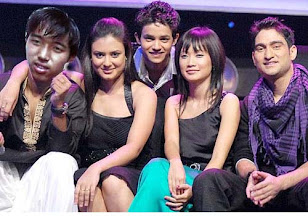Sponser
PPC Contestent Today's Nomination Aree.........
Adbrite for earn
Website For Promotion
Earn $2o and Cash out from Mastercard Free earn Oppurtunity
Adsense Video
My couter
That is my google search!!!!!!!!!!!!!!!!!!!!!!!!!

Article for you!!!
Two Ways Of Earning Online Money
By: John
When it comes to producing an info-product, there are 2 types of methods to choose from. You can either be creative or innovative. Creative means, you look at the market and come up with a good solution.
In effect, it is coming up with an info-product that will solve an existing need. Say for instance, you realize that people have a problem with writing articles, then you put up something like a rewriter software.
Or, if you realize that many people are trying to plan their joint venture's details, you can invent a joint venture profile software. Essentially, you'll be the first person to hit in the market. Make sense?
However if you want to minimize your risk of failing and earn cash fast, I'll opt to be an innovator. Observe the existing products available to fulfill the demand of a market. Look how good the sales volume is. Then, I'll be an innovator to provide better solution or tap on the existing opportunity.
Not sure what this means?
Let me explain ...
You may have realized that there are a lot of sales letter generator in the market, this is because of the innovative marketers that are creating them. PayDotCom, a relatively new company, is an added example of an innovator market that gives the same service as Clickbank.com
It was launched successfully after the creative company called Clickbank.com. Clickbank.com was the first site that provides credit card processing service with built-in affiliate tracking program for online marketers to use. Currently, there are new innovative marketers that have produced an affiliate tracking tool that can be included with other credit card processors like Paypal.com, 2checkout, authorize.net, etc.
Innovative marketing is not just about duplicating what is successful and trying to be superior, bigger or cheaper. That's a very narrow observation on how to make money which will eventually fail. {Just|Simply] by adding these 2 added ingredients in it, you'll change the whole profit model:
1. Looking for an angle
Finding an angle means positioning yourself unique from those who made it first. For example, Clickbank.com is a success. However other affiliate tracking tools that did not have a built-in credit card processor were very successful as well by tying up with third party credit card company. PayDotCom is also another good example of this for they solve the core problem.
2. Complimenting with the pioneer
Offer an info-product that can ride on the existing successful market. For discussion purposes, let's take for instance Clickbank.com. There are a lot of new tools created to improve the ease of using Clickbank.
Examples are: Software to handle your Clickbank.com affiliates; Software to extract your Clickbank sales report into a Microsoft Excel file; Software to make Clickbank.com search engine tool that is integrated with Clickbank ID;Video tutorials on how to setup Clickbank.com account; and so much more.
See what's happening on the internet.Make a decision if you want to become a creative or innovative marketer. Then, TAKE ACTION!
About the Author
John Siuda is the owner of the profit pulling site selling info-products
To find out more about how to make money online and to get limited time free video training, visit
(ArticlesBase SC #2131175)
Article Source: http://www.articlesbase.com/ - Two Ways Of Earning Online Money
Monday, February 8, 2010
As of Friday, Toyota had attracted more than a dozen class actions filed on behalf of consumers who allege that Toyota's failure to adequately disclose problems with its accelerator pedals amounted to fraud. At least three other suits were filed on behalf of people injured, or whose family members were killed, when their Toyota accelerated without warning. Additional firms planned shareholder suits against Toyota, whose stock value has dropped beneath the weight of the negative publicity.
"This is not a human carnage, this is economic disassembling," said Tim Howard, a professor at Northeastern University in Boston who as a plaintiffs attorney specializes in consumer and products liability litigation. "But Toyota will experience some pain from this process. And it's our job to inflict it."
Despite the rising litigation, the consumer claims face a number of obstacles, according to some law professors and defense attorneys. Consumers will have to prove actual economic damages and assert individual claims that are consistent enough to merit class certification by federal courts -- both feats that were difficult for plaintiffs' firms in earlier consumer class actions alleging economic harm due to a defective product.
"These kinds of lawsuits will have a rough time in court," said James A. Henderson Jr., a professor at Cornell Law School who specializes in torts and products liability. "Courts will dismiss them. And in the long run, not very much will come of it."
ASSESSING THE DAMAGES
Toyota announced on Jan. 26 that it would stop selling eight models because of accelerator pedals that can stick in the depressed position, causing the cars to speed up out of control. The company has recalled 2.3 million vehicles with that problem. Earlier, Toyota recalled another 4.2 million vehicles, blaming a problem with floor mats.
On Feb. 1, Toyota announced a plan to fix the accelerators. Since then, Congress has scheduled hearings and the National Highway Transportation Safety Administration (NHTSA) has begun considering fines on the ground that Toyota may have delayed the recalls.
That's not all. On Thursday, NHTSA launched a formal investigation into a faulty braking system on the 2010 Toyota Prius hybrid. Toyota blamed a software glitch but hadn't ordered a recall as of Friday, and no lawsuits had been filed regarding the Prius.
Brian Lyons, a spokesman for Toyota Motor Sales USA Inc., declined comment on the litigation. The company is based in Torrance, Calif.
Most of the suits are class actions filed on behalf of consumers alleging economic harm, not actual physical injuries -- essentially, the case is that a defective car isn't worth as much as the quality car that buyers thought they were paying for. In most cases, the lead plaintiffs have experienced some type of unintended acceleration. The suits, which in most cases involve a potential class of consumers in the states in which they were filed, have been brought by small firms across the country, including Lambert and Nelson, a products liability firm in New Orleans specializing in maritime and aviation torts; Lewis & Babcock, a civil litigation and toxic tort firm in Columbia, S.C.; Morgan & Morgan, a personal injury firm based in Orlando, Fla.; Hilliard Muñoz Guerra, a personal injury and class action firm in Corpus Christi, Texas; McCuneWright, a firm in Redlands, Calif., that specializes in consumer class actions and defective products, particularly involving automobiles; and Kirtland & Packard, a firm in Los Angeles. Two larger firms, Houston's Susman Godfrey and Baron & Budd of Dallas, brought class actions in California.
The firms filed in federal court, in general, alleging state claims of consumer fraud, breach of implied contract, negligence, breach of implied warranty and unjust enrichment.
"There are damages among consumers because, no matter what happens here, the cars that people bought will be worth less, whether there's a quick fix or a long fix," said Howard, one of the lawyers behind an action filed on Jan. 29 in U.S. District Court for the Northern District of Florida. That suit seeks $1 billion in damages on behalf of a nationwide class of consumers.
Some 15 law firms have been working as a team in that case, including Jacksonville, Fla.-based Wilner Hartley & Metcalf, whose name partner, Norwood "Woody" Wilner, is well known for bringing successful claims against the tobacco industry. Howard said that individual lawyers on the team plan to file another three dozen suits within the next week or two in at least 25 states. Eventually, he said, the suits will be coordinated as multidistrict litigation.
One of the team's members, Stephen A. Sheller of Sheller P.C. in Philadelphia, said that he planned to file consumer class actions in Pennsylvania and New Jersey in the coming days. Sheller has obtained billions of dollars in recoveries from tobacco companies and, most recently, from Pfizer Inc. and Eli Lilly and Co.
Robert Steinberg, a partner at Cincinnati's Waite, Schneider, Bayless & Chesley, cautioned that federal actions on behalf of a national class could be difficult to sustain, given that consumer fraud statutes vary from state to state. His firm filed a class action on behalf of Ohio consumers, alleging that Toyota failed to inform an Ohio couple of the unintended acceleration dangers associated with a 2010 Toyota Camry they leased in November. The car already had a repaired floor mat, according to the suit.
"It's still an Ohio class action suit based on Ohio law, so there's not going to be a problem in our view in certifying the class," he said. "The conduct is consistent to the class."
Observers warned that consumer class actions could face trouble no matter where they are filed. The legal battle will center on whether the consumers can prove damages, said Jeffrey Judd, a partner in the San Francisco office of Howrey. Judd represented Ford Motor Co. in rollover cases allegedly tied to recalled Firestone tires.
Toyota, he said, likely will assert a defense that says: "Those people who bought their vehicles, we repaired any defects and they haven't been harmed. So where's the harm? Show us how people have been hurt."











No comments:
Post a Comment